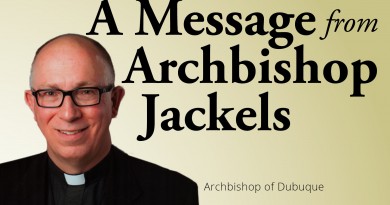Multiplication of loaves
June 23, 2019
THE SOLEMNITY OF THE MOST HOLY BODY AND BLOOD OF CHRIST
Gn 14:18-20
Melchizedek, king of Salem
Ps 110:1-4
You are a priest forever
1 Cor 11:23-26
Blessing over the bread
Lk 9:11-17
Multiplication of loaves
http://www.usccb.org/bible/readings/ 062319.cfm
[ms-protect-content id=”1339,323,1059,1325,324,257,322,6459″]
 The traditional name for this feast is Corpus Christi. Three themes represent the Scripture readings for this year’s celebration — the figure of Melchizedek, Paul’s account of the words of institution over the bread and cup, and Luke’s narrative of the multiplication of loaves and fishes.
The traditional name for this feast is Corpus Christi. Three themes represent the Scripture readings for this year’s celebration — the figure of Melchizedek, Paul’s account of the words of institution over the bread and cup, and Luke’s narrative of the multiplication of loaves and fishes.
With the Genesis story and Psalm 110, today’s liturgy makes use of two of the three times Melchizedek is mentioned in the Bible. Since this king of Salem appears without introduction, or subsequently in Genesis, the psalm later can adopt him to represent God-sent authentic kingship. In Hebrew, his name means “My king is justice.” But Melchizedek was also a priest, as well as a king, and this permits the psalm to develop this side of the story.
But it is the third place he is mentioned in the Bible, Hebrews 5-7, that determines his appearance here. There he is mentioned eight times (5:6, 10; 6:20; 7:1, 10, 11, 15, 17). For Hebrews, he prefigures Jesus, a priest healing the division between God and humanity. The letter to the Hebrews lurks in the background of today’s feast.
The passage from I Corinthians 11 gives Paul’s account of what “I received from the Lord” and “also handed on to you,” namely, the words of blessing over the bread and the cup. This is one of four accounts of the eucharistic words, the others being in the Last Supper accounts of Matthew, Mark and Luke. John’s Gospel, you will remember, does not mention the bread and cup, but instead reports the washing of the feet. In fact, one of the impulses behind having the feast of Corpus Christi is that on Holy Thursday the supper account was about the foot washing, not the bread and the cup. The supper meal that stands as the foundation of the eucharistic liturgy, not treated then, is now given its due attention.
The third center of gravity for this Sunday is the multiplication of the leaves and fishes. It begins with a situation of human need. There is not enough food to satisfy the hunger of the gathered multitude. Furthermore, they are in a “deserted place,” and some measures for dealing with meal arrangements need to be put in place. They are near Bethsaida, a fishing village, but that is not enough, most likely, to supply their needs.
The account moves quickly from the literal to the symbolic. The numbers involved are symbolic numbers. As Sharon Ringe points out in her commentary on Luke, the number five signals completeness in Jewish tradition. Consider the five books of Moses, the five divisions of the book of Psalms, and so forth. The five fish are “complete” in that this is all they will need. The two fish suggest the number needed for reproduction, hence it too is complete. In other words, what they have is sufficient, as the story will prove.
In Jewish and Gentile traditions, 10 was a “perfect” number. The crowd of 5,000 is itself a multiplication (5 times 10 times 10 times 10 equals 5,000), suggesting “everyone” was present. They were divided into groups of 50, also a significant number, hinting at the year of jubilee, in Leviticus 25.
But the symbolic numbers move into symbolic actions. In language that anticipates the Last Supper (and so also today’s feast), Jesus takes the loaves and fish, blesses them, breaks them and gives them to the “disciples” to distribute. The food is enough to feed the crowd, and 12 baskets are left over. Symbolically, this is sufficient for the 12 tribes of Israel. Our author, Luke, is concerned about the role of Gentiles in the early church, and here we see enough to feed both Israel and the Gentile church.
For reflection: These three themes come together in interesting ways.
Father Beck is professor emeritus of religious studies at Loras College, Dubuque.
[/ms-protect-content]
[ms-membership-login]



